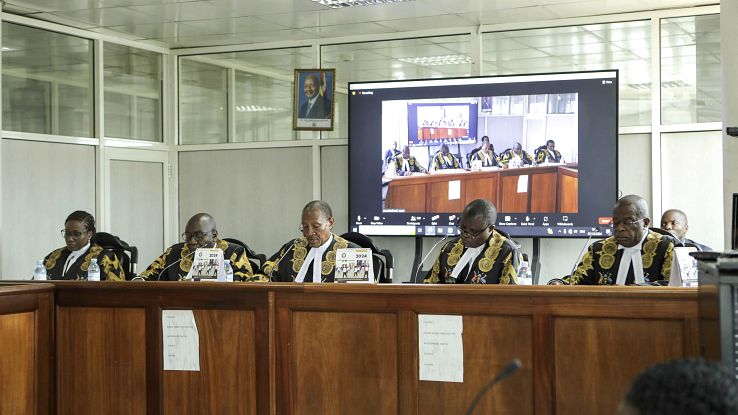World leaders, health groups, and pharmaceutical firms announced $1.2 billion in funding to produce vaccines in Africa, at the Global Forum for Vaccine Sovereignty and Innovation in Paris on Thursday
The Covid-19 pandemic exposed gaping global inequalities in access to vaccines, including in Africa which is facing numerous health crises.
Speaking at the gathering, French President Emmanuel Macron said the African Vaccine Manufacturing Accelerator would be “an essential step towards a genuine African vaccine market”.
“Africa produces only two per cent of the vaccines it uses and the goal that we have set is that by 2040, that production is increased to sixty per cent,” he said.
A recent resurgence of cholera in many parts of Africa has highlighted the need for more local vaccine producers.
“More than four years ago Covid strongly disrupted our health systems and endangered our vaccination programmes that were pushed into the background because of the necessity to fight the pandemic,” Senegal’s President Bassirou Diomaye Faye, told delegates.
“According to the UNICEF report of 2021, at the height of the pandemic, 23 million children didn’t receive the basic vaccines necessary to their normal development.”
Also at the forum, the Gavi vaccine alliance, which helps distribute jabs for more than 20 different diseases to poorer countries, announced it is hoping to raise $9 billion for its vaccine programmes.
It was one of the organiser of the forum.
Gavi says the project aims to make up to $1 billion available over the next 10 years to help boost Africa’s manufacturing base, to improve global vaccines markets and preparedness and response to pandemics and disease outbreaks.
The Geneva-based alliance says the accelerator will inject funds into manufacturers in Africa once they hit supply and regulatory milestones, with an aim to use market forces to drive down prices and encourage investment upstream.
Officials say the project will explore issues like technology transfer — which has been resisted by some Western countries with powerful pharmaceutical companies — as well as the possible creation of a African medicines agency and tackling regulatory hurdles faced in Africa’s patchwork of legal systems.




